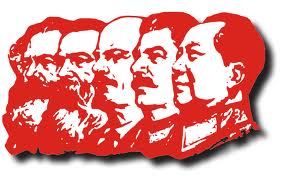I don't know exactly how the blog post I linked is different from the final version that he appends to CONTINUITY AND RUPTURE, but to me this was a very clarifying theoretical text about the goals and applications of revolutionary theory. If you're familiar with JMP you'll know that he argues for Maoism as the most advanced form or revolutionary theory, and in this specific case, what makes it superior to Trotskyism's eurocentric limitations. I hope some people check it out and maybe we can discuss it in this thread :stalin-heart: :stalin-heart:
Though JMP is going out his way to do new synthesis on Trotskyism and Maoism and avoid the old pitfalls, he still makes some really weird comments. Like I would not consider Hal Draper or Raya Dunesvekaya followers to act like anarchists. I'm also not a Trotskyist at all but he's straight up wrong with respect to it being an alien ideology in the third world. South America had significant Trotskyist movements in the mid twentieth century, as did Sri Lanka. Vietnam did as well. He actually mentions Vietnam but then blames the Trotskyists failure on some inherent theoretical flaw instead of the brutal fact that they were hunted down and exterminated by the French and Vietminh (if anyone is interested in reading on that experience, Ngô Văn Xuyết is one of the few who made it out and wrote about his experiences with Trotskyists organizing in vietnam in the 30s and 40s). I'd also say his characterizations of the success and ideological coherency of current Maoist groups is very overblown.
Overall I think he's hard mischaracterizing ideas of a lot of tendencies in that piece tbh, and is making a strawman of the critique that Trotskyists had by picking the most extreme people only.
I think he's also just outright wrong on the conceptions of socialism and communism for Marx and Engels and his super instrumentalist view of the state, and because of those base assumption that kind of makes me disagree with the entire rest of the piece. Like he's working from assumptions that I think are fundamentally wrong, and the rest of it is just kind of meaningless because of that.

